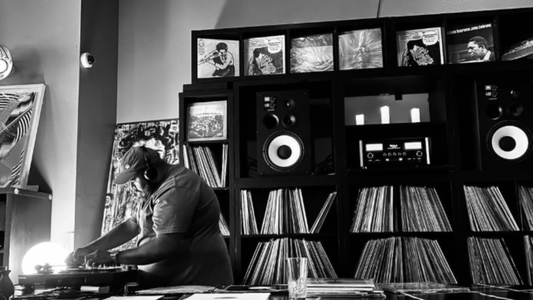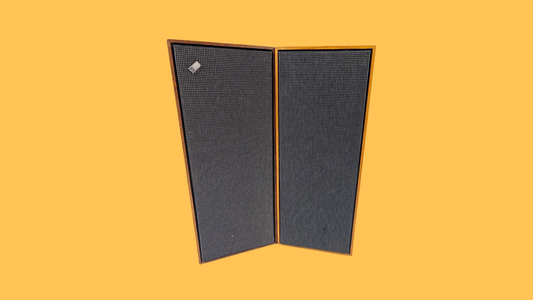
Ezra Collective – You Can’t Steal My Joy (2019)
By Rafi Mercer
Some records feel like they’ve been waiting for the right moment to arrive. You Can’t Steal My Joy came in 2019, but it already sounded timeless — a record built not from nostalgia, but from renewal. It was the sound of London re-discovering its own rhythm: jazz as conversation, joy as resistance, groove as community.
Ezra Collective aren’t a revival act; they’re a reminder. They take the spirit of Fela Kuti, the elasticity of Herbie Hancock, the warmth of reggae sound systems, and the raw pulse of UK grime — and turn it into something entirely theirs. You can feel it in every measure: this is jazz not for the museum, but for the street.

The album opens with intent. “Space Is the Place” isn’t just a nod to Sun Ra; it’s a manifesto. The horns are exuberant, the drums uncontainable, the bassline walking with confidence. You can tell from the first seconds that this is music that moves. Not in the polite, chin-stroking sense — but in the body, in the blood.
Femi Koleoso’s drumming drives it all. He plays like a man tracing history through rhythm — Tony Allen’s syncopation meeting Tony Williams’ fire. His brother T.J. on bass locks in beside him, giving the music its heartbeat. Joe Armon-Jones’ keys glide and scatter, Dylan Jones’ trumpet dances on top, and James Mollison’s sax holds the line with steady warmth. Together they don’t just perform; they connect.
Then comes the title track — “You Can’t Steal My Joy.” It’s more than optimism. It’s defiance. A declaration that celebration itself can be an act of resistance. You feel that deep London DNA — the sense that even in hardship, groove is survival. The track rolls forward like Carnival on a summer evening: horns bright, rhythm full, melody free.
Through a good system, the album glows. The production is clean but never sterile. You can hear the air around the instruments — the space of the room, the laughter between takes, the breath before a solo. “What Am I to Do?” featuring Loyle Carner folds hip-hop into the mix with ease, showing how naturally this generation blends genres that older critics once kept apart.
There’s playfulness too. “Why You Mad?” twists rhythmic tension into dancefloor release, while “Quest for Coin” runs with a cinematic intensity. “Red Whine” drifts into reggae-jazz bliss — a wink to the lovers-rock heritage woven through South London’s DNA. And then “Shakara,” a Fela Kuti cover, roots everything in the Afrobeat tradition that clearly fuels them. It’s not imitation; it’s inheritance.
What makes You Can’t Steal My Joy remarkable is that it sounds both spontaneous and intentional. The band’s chemistry is telepathic — grooves stretch and contract, solos rise then recede, and somehow it all lands in unison. You can tell this is music built from live experience — small rooms, late nights, and the shared language of improvisation.
And then there’s the deeper current running underneath. The album’s title is a quiet protest. It arrived at a moment when the UK felt fractured, when joy itself felt rationed. Ezra Collective’s answer wasn’t despair or irony — it was rhythm. Their message was simple: you can take the stage, the platform, the pay, the peace — but you can’t steal the joy. That’s ours.
On vinyl or a good hi-fi system, the album breathes differently. You catch subtle textures — the warmth of cymbal decay, the edge of breath in a horn solo, the lift of crowd energy caught by the room microphones. It’s not background music. It’s alive.
By the time the final notes fade, you realise something important. This isn’t retro revivalism or jazz for playlists. It’s a continuation of a story that began in church halls, basements, and Carnival floats — music as affirmation, played not for approval but for community.
That’s why You Can’t Steal My Joy belongs in the Tracks & Tales collection. It’s a listening album, but not a quiet one. It’s proof that joy can be both the process and the protest — that sound itself can be a form of endurance.
Some albums soothe you. Others wake you up. This one does both.
Rafi Mercer writes about the spaces where music matters.
For more stories from Tracks & Tales, subscribe, or click here to read more.














